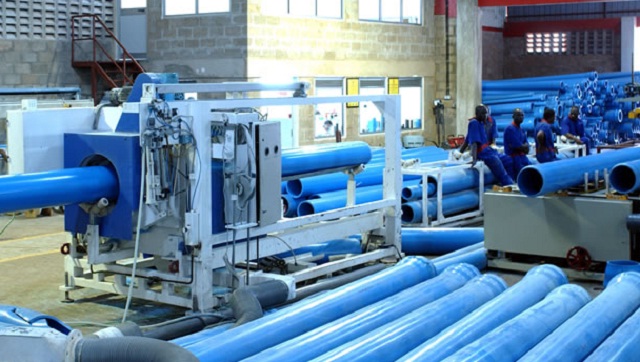
Study shows sector is worse off today than it was eight years ago
Kampala, Uganda | JULIUS BUSINGE | How has the Uganda’s Industrial Policy performed since it came into existence 10 years ago? Is it at par with the changing socio-economic issues? Will it be redesigned in such a way that it stimulates specific economic activities and promote structural change? Who is the target for this policy, and is the latter in the know about it and how to contribute to its success? How about its effective implementation?
The current policy, which is under review, runs on a core objective of stirring growth of industry into a competitive, modern and dynamic sector, fully integrated into the domestic, regional and global economies.
The above questions were the ones that Friedrich-Ebert-Stiftung, a German political not for profit organization, attempted to answer in a baseline study conducted in Uganda during the FY2016/17 dubbed “Analysis of Existing Industrial Policies and State of Implementation in Uganda.”
Released at the Sheraton Kampala Hotel on April 13, the findings show that the country has continued to pursue the old, neoliberal dogma where private investment is supposed to be ‘good’ while state intervention is ‘bad’.
The study also shows that the country’s development strategy is uncoordinated, poorly communicated and poorly understood. It also shows that while the policy focuses on agro-processing, it is implemented without supporting policies on industrial financing, labour management and standards regulation.
“The sector is also driven by mining and quarrying, construction and electricity, most of which require little labour, the report reads in part adding that the labour intensive manufacturing sub-sector has stagnated since 1960s and dominated by food and beverage processing.
The study adds that the debate on industrial policy is being spoiled by fear, self-serving private interests, bureaucratic elites who profess neo-liberalism, supported by external influence and multi-national companies. The political elite, the report says, are reluctant to unpack the industrial policy.
The report comes at the time policy makers are reviewing Uganda’s Industrial Policy to suit the changing economic trends and stimulate.
Statistics from Uganda Bureau of Statistics (UBOS) shows that the country’s industrial sector growth has declined from 7.9% in 2009/10 to 3.3% in FY2016/17, signaling that the sector’s performance is worse today compared to nearly eight years ago.
As such, Friedrich-Ebert-Stiftung report recommends that Uganda should rethink her development strategy and industrial policy by investing heavily in strategic industries; rethink the budgeting process – which it said is short-term oriented; promote growth with diversification, export competitiveness, productivity, technological upgrade and human well-being.
It adds that the industrialisation policy should be biased towards manufacturing to provide much needed jobs.
The report also adds that the industrial sector would be supported by government increasing investment in agricultural value chain by 10% of the budget in addition to providing affordable and viable long term development finance.
“There has to be tax reforms so that industrialists have an advantage over importers,” the report adds.
Beyond Uganda, the report notes that there are key lessons to learn from countries like Ethiopia that have made strides in this sector such as prioritising industrial development by politicians, redefining the development role of the state, reforming the governance environment, promoting aggressive resource mobilization and allocation for industrial development in addition to building technical and bureaucratic elite for effective public administration.
Ramathan Ggoobi, a senior economist and lead researcher for the FES baseline study, said that Uganda has been acknowledged as one of the star reformers yet not a star performer.
He said Uganda has failed to change the economic structure; failed to sustain the robust growth which is partly why the country is grappling with high level of unemployment especially among its youth.
 The Independent Uganda: You get the Truth we Pay the Price
The Independent Uganda: You get the Truth we Pay the Price



